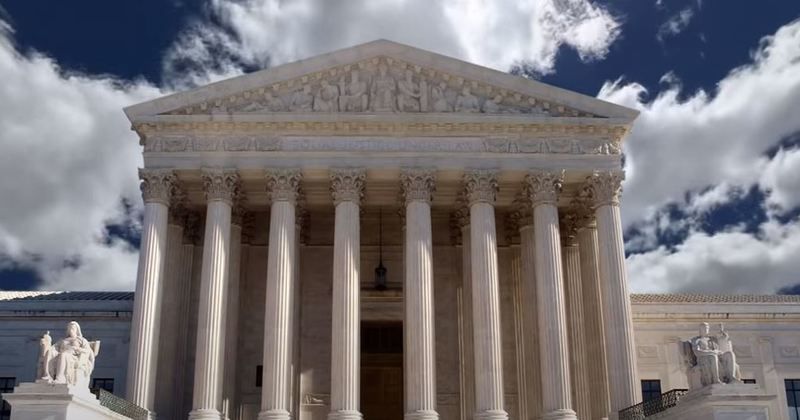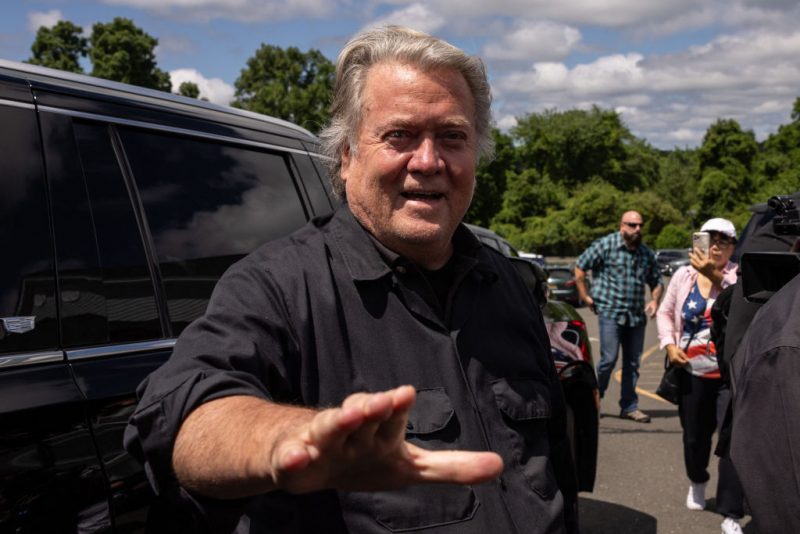The U.S. Supreme Court in 2024 delivered several landmark rulings, shaping the nation’s legal and political landscape. These decisions ranged from redefining presidential immunity, halting efforts to expand transgender protections under Title IX, and overturning the influential Chevron doctrine, which impacted federal regulatory authority. Below is an overview of the year’s most pivotal rulings.
Department of Education v. Louisiana
Title IX and Gender Identity Protections
On August 16, the Supreme Court upheld lower court injunctions preventing the Biden administration from implementing a revised Title IX regulation. The proposed rule expanded the definition of sex discrimination to include sexual orientation and gender identity.
In an unsigned opinion, the Court emphasized the plaintiffs’ right to preliminary relief, rejecting the Department of Education’s plea to allow parts of the rule to proceed while litigation continued.
The rule faced fierce opposition from Republican-led states, with Louisiana Attorney General Liz Murrill stating:
“Other than the 19th Amendment guaranteeing our right to vote, Title IX has been the most successful law in history at ensuring equal opportunity for women in education… I’ll keep fighting to block this radical agenda that eviscerates Title IX.”
Republican officials warned that the Biden rule would undermine protections for women’s sports and spaces. As litigation continues, injunctions remain in place across 26 states.
Moody v. NetChoice, LLC
Social Media Platforms and Free Speech
On July 1, the Court struck down efforts by Texas and Florida to regulate content moderation practices on major social media platforms like X (formerly Twitter), Facebook, and YouTube. In a 5-4 decision, Justice Elena Kagan wrote:
“The principle [of editorial freedom] does not change because the curated compilation has gone from the physical to the virtual world.”
The ruling emphasized platforms’ rights under the First Amendment to control their content and returned the cases to lower courts for further review. The challenged laws aimed to address claims that tech platforms disproportionately censored conservative voices. Texas Governor Greg Abbott defended the state’s regulation, stating:
“Social media platforms… are a place for healthy public debate where information should be able to flow freely… That is wrong, and we will not allow it in Texas.”
Trump v. United States
Presidential Immunity
In a closely watched decision on July 1, the Supreme Court affirmed significant protections for former presidents, ruling in favor of Donald Trump in a case related to the 2020 election.
The Court stopped short of dismissing the case but delayed proceedings, ensuring that Trump would not face trial before the November 2024 election. Chief Justice John Roberts, writing for the majority, stated:
“The President enjoys no immunity for his unofficial acts, and not everything the President does is official… But Congress may not criminalize the President’s conduct in carrying out the responsibilities of the Executive Branch.”
Relentless, Inc. v. Department of Commerce
Overturning the Chevron Doctrine
In a historic 6-3 ruling on June 28, the Supreme Court overturned the 1984 Chevron v. NRDC precedent, which required courts to defer to federal agencies’ interpretations of ambiguous laws. Chief Justice John Roberts explained:
“Federal judges must now exercise their independent judgment in deciding whether an agency has acted within its statutory authority.”
Critics of Chevron deference celebrated the decision as a victory for limiting the power of regulatory agencies, which could face increased challenges to enforce rules on environmental protection, workplace safety, and more. The ruling stemmed from a dispute involving federal monitoring requirements for fishermen.
Fischer v. United States
Narrowing Obstruction Charges for January 6 Defendants
The Court on June 28 ruled 6-3 in favor of Joseph Fischer, a participant in the January 6 Capitol riot, challenging his conviction under a federal obstruction statute.
Chief Justice Roberts noted that the Justice Department stretched the law too broadly:
“The vast majority of the more than 1,400 defendants charged for their illegal actions on January 6 will not be affected by this decision.”
Attorney General Merrick Garland expressed disappointment but reaffirmed the department’s commitment to holding those responsible for the attack accountable.
These rulings highlight the Supreme Court’s significant role in shaping the interpretation of constitutional and federal law, with profound implications for the judiciary, executive power, and societal norms.
 Telegram is where we really talk. Don't miss out!
Telegram is where we really talk. Don't miss out!







